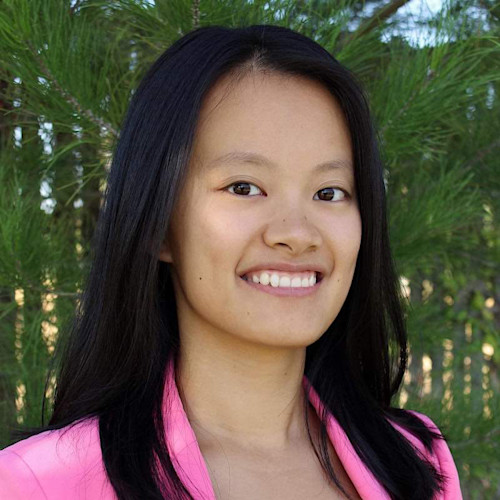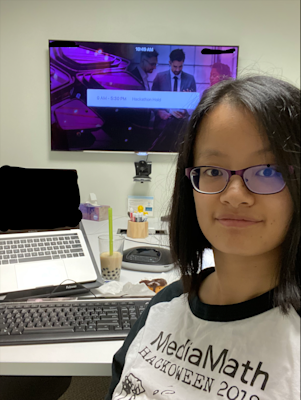Qianyun “Aria” Chang, 25

Aria came to the United States by herself as an international student at the age of fifteen. She had to teach herself English and is proud to have completed her education on her own in another country and secured her dream job as a software engineer at MediaMath.
Aria’s exposure to the hacker community stemmed from a fascination in the math behind artificial intelligence, machine learning, and game AI algorithms. However, Aria lacked confidence as she had little experience in coding prior to her sophomore year of college. When she finally decided to take more computer science courses during her junior year, she felt behind compared to her peers. Soon, Aria found that she had nothing to worry about: she won two awards at her first hackathon at UC Berkeley.
Aria’s team worked with Google Cloud’s Speech to Text API and IBM’s Watson’s Sentiment Analysis API. It was a lot of work to get the project to track student’s learning progress, but it was worth it. Their project won the best education hack and CalHacks fellowship award. This gave Aria the validation and recognition she needed to continue pursuing computer science. Addicted to the high of winning, Aria started attending hackathons left and right.
Hackathons inspired Aria to jump into projects in unfamiliar domains. She has taken up multiple research projects with professors and created her own side projects. Hackathons also led her to an internship doing smart grid research. In this internship, she created the prototype for a deep reinforcement learning agent to control power grid settings and fix contingencies. The paper based on the model she created won her colleagues and her the best IEEE paper award. She received an offer from MediaMath for a full-time software engineering position on a data engineering team doing large scale machine learning projects.
Her favorite project came from her team at HackDavis when she worked with the Muse headband which utilizes brainwave detection. Their project Brainalyzer used the headband to record a user’s brain waves in order to detect abnormalities and predict seizures. They found a brainwave dataset and performed feature selection and created an LSTM model to predict brainwaves. This project won the best use of Google Cloud Platform.
Quick Facts

Qianyun “Aria” Chang, 25

Aria came to the United States by herself as an international student at the age of fifteen. She had to teach herself English and is proud to have completed her education on her own in another country and secured her dream job as a software engineer at MediaMath.
Aria’s exposure to the hacker community stemmed from a fascination in the math behind artificial intelligence, machine learning, and game AI algorithms. However, Aria lacked confidence as she had little experience in coding prior to her sophomore year of college. When she finally decided to take more computer science courses during her junior year, she felt behind compared to her peers. Soon, Aria found that she had nothing to worry about: she won two awards at her first hackathon at UC Berkeley.
Aria’s team worked with Google Cloud’s Speech to Text API and IBM’s Watson’s Sentiment Analysis API. It was a lot of work to get the project to track student’s learning progress, but it was worth it. Their project won the best education hack and CalHacks fellowship award. This gave Aria the validation and recognition she needed to continue pursuing computer science. Addicted to the high of winning, Aria started attending hackathons left and right.
Hackathons inspired Aria to jump into projects in unfamiliar domains. She has taken up multiple research projects with professors and created her own side projects. Hackathons also led her to an internship doing smart grid research. In this internship, she created the prototype for a deep reinforcement learning agent to control power grid settings and fix contingencies. The paper based on the model she created won her colleagues and her the best IEEE paper award. She received an offer from MediaMath for a full-time software engineering position on a data engineering team doing large scale machine learning projects.
Her favorite project came from her team at HackDavis when she worked with the Muse headband which utilizes brainwave detection. Their project Brainalyzer used the headband to record a user’s brain waves in order to detect abnormalities and predict seizures. They found a brainwave dataset and performed feature selection and created an LSTM model to predict brainwaves. This project won the best use of Google Cloud Platform.
Quick Facts




